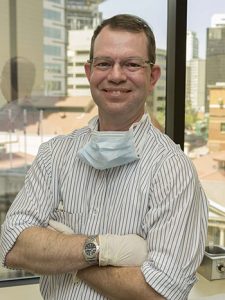Why Do I Grind My Teeth At Night?
Are you being woken up through the night by your partner because of the grating noises you make from grinding your teeth?
We all want and need a good night’s sleep, but that’s not always the case if you are a night time grinder. This is what is known as bruxism.
So Let’s Take A Look At What Causes Bruxism.
Uneven Bite: One of the main reasons can be occlusal factors (ill-fitting bite), meaning your bite is not feeling right or your teeth are not closing onto each other evenly. Sometimes there may not be any contact between teeth at all.
Emotional Stress: When we are under stress we put tension on your back or neck muscles and they become imbalanced. It’s our body’s natural reaction to attempt to restore balance to our muscles and find a relaxed position. Night times can be stressing your muscles through grinding because they can’t get to a relaxed position.
Ill-fitting Dentures: This is another cause of bruxism and also people who have a lack of teeth. We find that most jaw activity occurs in the second half of the night. A typical grinder or bruxism can generally have two hours of tooth contact a night, as opposed to a non-grinder, who would have twenty minutes. Years of grinding and clenching not only damage your teeth, but leads to permanent jaw pain and damage to the jaw joints.
What Are The Signs Of Bruxism
Have you noticed that your teeth are getting shorter over the years? A telltale sign of a night-time tooth grinder are their front teeth are worn down flat or even in length. But bruxism is a slow process. Most patients don’t notice this until they are told by their dentist or friends, how short your teeth are. Then when they compare today’s teeth with photos from years ago and noticed the difference.
Some people describe the sensitivity to heat and cold, headaches and jaw pain as well as clicking and jaw joint noises. Gum recession is another sign as this is due to the pressure that is put on the gum line.
How Can Bruxism Be Treated?
 If you have a problem with sleep bruxism, it may be necessary to have a fully protective splint fitted to support your jaw in the ideal position during sleep. They reduce muscle activity and protect your teeth and jaw joint from further damage. Once your muscles are relaxed and your jaw is in the right position, your teeth can be restored.
If you have a problem with sleep bruxism, it may be necessary to have a fully protective splint fitted to support your jaw in the ideal position during sleep. They reduce muscle activity and protect your teeth and jaw joint from further damage. Once your muscles are relaxed and your jaw is in the right position, your teeth can be restored.
Note: Flat splints are not advisable as this can increase bruxism.
In rare occasions where bruxism cannot be eliminated, you may just need reinforced dentures to stand up under the forces.
Your dental specialist or dentist may also advise the built up of lost tooth structure in the form of bite reconstruction to give a fully protective bite. Some people notice an increase in the height of their lower face (an increase of vertical height) after this.
Most patients see their specialist or dentist when it’s too late and treatment then becomes comprehensive and expensive. Choosing the right restorative materials is important for a long-term solution and recovery.
This is where SEQ Dental Specialist can help.
If you would like to know more please give us a call 07 3221 0443 or Contact Us and we will arrange a consultation at your convenience. Dr. Florian Mack looks forward to having the opportunity to speak with you in either practice in Brisbane City, Southport or Toowoomba.



